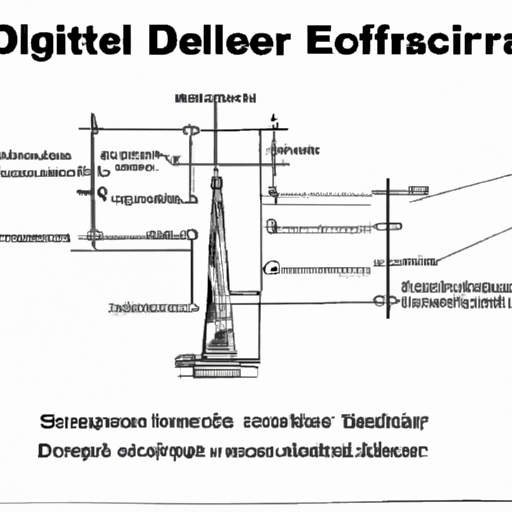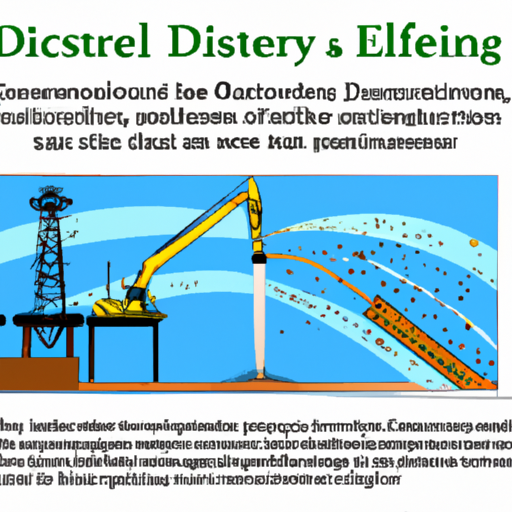The Role of Desilter in Drilling Rigs: Enhancing Efficiency and Performance

Introduction:
Drilling rigs play a pivotal role in the oil and gas industry, enabling the extraction of valuable resources from beneath the Earth's surface. These rigs are complex machines that require various components to operate seamlessly. One such crucial component is the desilter, which is specifically designed to remove fine solids from drilling fluids. In this article, we will delve deeper into the importance of desilters in drilling rigs, their functionality, and the benefits they bring to the drilling process.
Understanding Desilters:
Desilters are part of the solids control equipment used in drilling operations. Their primary function is to separate fine solids, typically ranging from 15 to 44 microns, from drilling fluids or mud. These fine solids, if left untreated, can hinder the drilling process, impact the efficiency of the rig, and cause damage to downstream equipment.
Functionality of Desilters:
Desilters are typically installed downstream from shale shakers and desanders, forming the final stage of the solids removal process. The drilling fluid, after passing through the initial stages of solids control, enters the desilter unit. This unit consists of a set of hydrocyclones, which utilize centrifugal force to separate the solids from the liquid phase.
As the drilling fluid enters the desilter unit, it flows into the hydrocyclones, where the rotational motion creates a centrifugal force. This force causes the heavier solids to move towards the outer wall of the hydrocyclone, while the lighter liquid phase moves towards the center. The separated solids are then discharged through an underflow nozzle, while the cleaned drilling fluid exits through the overflow pipe.
Benefits of Desilters in Drilling Rigs:
1. Improved Drilling Fluid Quality:

Desilters play a vital role in maintaining the quality of drilling fluids. By removing fine solids, they prevent the accumulation of solids in the drilling mud, ensuring its proper rheological properties. This, in turn, enhances the overall drilling efficiency and reduces the chances of equipment failures.
2. Extended Equipment Lifespan:
The presence of fine solids in drilling fluids can cause significant damage to downstream equipment, such as pumps, valves, and drill bits. Desilters help to minimize this risk by effectively removing the solids before they reach critical components. As a result, the lifespan of the equipment is extended, leading to reduced maintenance costs and downtime.
3. Enhanced Drilling Performance:
The efficient removal of fine solids by desilters contributes to improved drilling performance. By maintaining the required drilling fluid properties, desilters allow for better hole cleaning, faster penetration rates, and more accurate measurements while drilling. This leads to increased productivity and shorter drilling cycles.
4. Environmental Protection:
Drilling operations produce significant amounts of drilling mud and cuttings, which must be managed properly to prevent environmental pollution. Desilters assist in this regard by removing solids from the drilling fluid, reducing the volume of waste generated. The cleaner drilling fluid can be reused, minimizing the environmental impact and complying with regulatory standards.
5. Cost Savings:
Efficient solids control systems, including desilters, can result in substantial cost savings for drilling operations. By removing fine solids and maintaining drilling fluid integrity, desilters reduce the need for additional chemicals and additives to compensate for poor fluid quality. Furthermore, the extended equipment lifespan and improved drilling performance translate into reduced downtime and increased overall operational efficiency.
Conclusion:
Desilters are an integral part of drilling rigs, contributing significantly to the efficiency and performance of drilling operations. By effectively removing fine solids from drilling fluids, desilters ensure the quality of the drilling mud, protect downstream equipment, enhance drilling performance, and reduce environmental impact. Investing in a well-designed and properly maintained desilter system can yield substantial benefits, including cost savings and increased productivity. As the oil and gas industry continues to evolve, the role of desilters in drilling rigs will remain crucial in meeting the demands of efficient and sustainable drilling processes.




 8613371530291
8613371530291